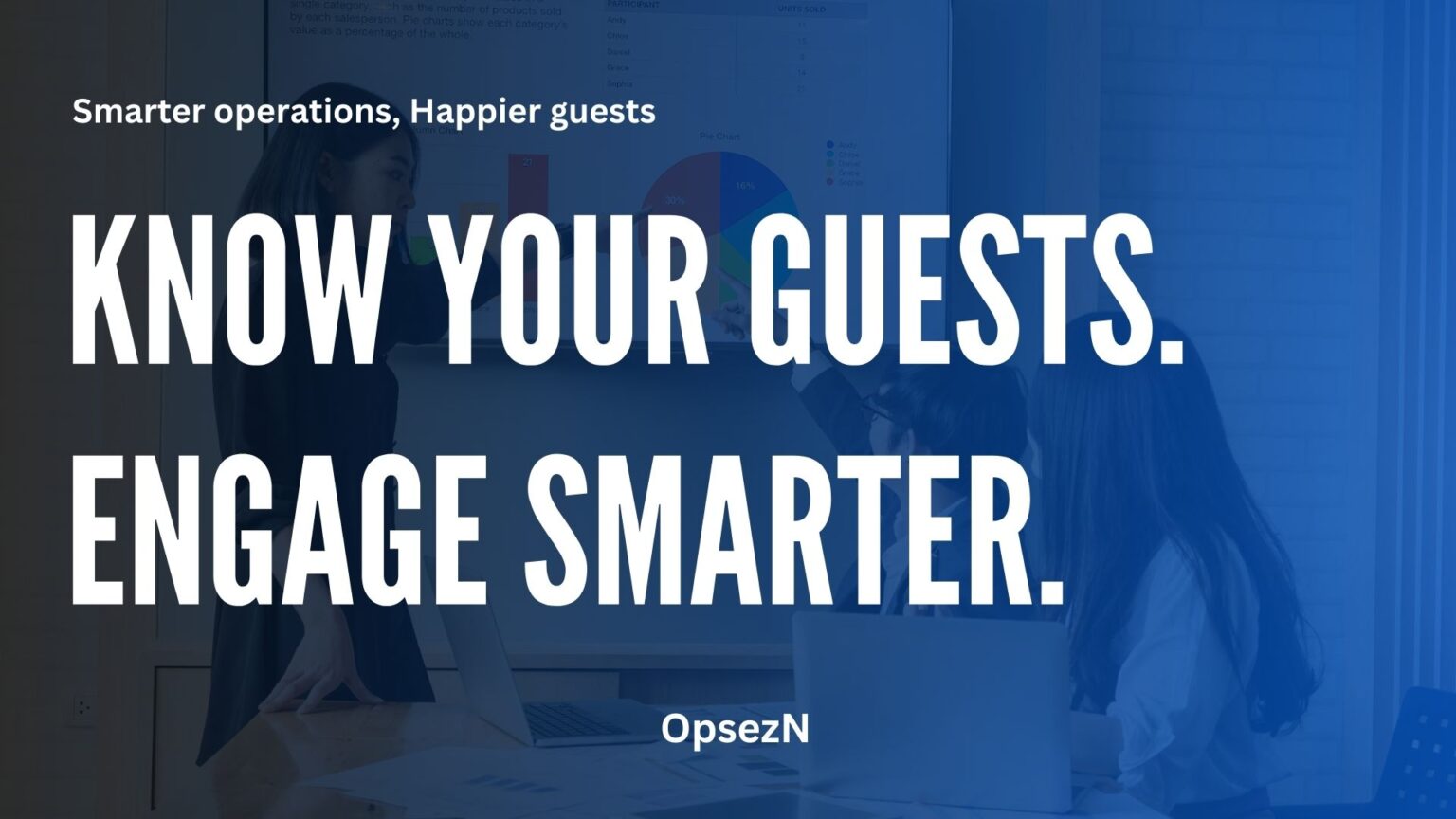
The hospitality industry is evolving rapidly, and AI-driven hotel management is at the forefront of this transformation. From enhancing guest experiences to streamlining back-end operations, artificial intelligence is making hotel management smarter, faster, and more profitable. By leveraging AI-driven tools, hoteliers can improve efficiency, reduce costs, and increase guest satisfaction—all while staying ahead of the competition.
The Role of AI in Hotel Management
AI is revolutionizing the hotel industry by offering real-time insights, automating routine tasks, and improving decision-making processes. Whether it’s through personalized guest experiences, predictive maintenance, or automated security management, AI-driven solutions are reshaping how hotels operate.
1. Guest Insights & Personalization
One of the most significant advantages of AI in hotel management is its ability to collect and analyze guest data, allowing for highly personalized experiences. Here’s how AI is enhancing guest interactions:
1.1 Identifying Language Preferences
AI-powered chatbots and customer relationship management (CRM) tools can detect a guest’s preferred language based on previous interactions. This allows hotels to provide personalized communication and cater to international travelers more effectively.
1.2 Tracking Spending Behavior
By analyzing guests’ spending habits, hotels can optimize pricing strategies and promotional offers. AI systems can identify high-spending guests and suggest premium services, ensuring that hotels maximize revenue while enhancing the guest experience.
1.3 AI-Driven Recommendations
Machine learning algorithms can analyze guest preferences and behavior to provide customized recommendations for dining, spa treatments, room upgrades, and local attractions. This level of personalization increases guest satisfaction and loyalty.
2. Efficient Sensor & Site Management
AI-powered sensor technology is revolutionizing the way hotels manage their physical infrastructure. From energy efficiency to predictive maintenance, AI ensures smooth operations while reducing costs.
2.1 Real-Time Sensor Activity Monitoring
Hotels equipped with smart sensors can monitor temperature, lighting, humidity, and occupancy levels in real time. AI-powered systems automatically adjust these settings based on occupancy patterns, ensuring energy efficiency while enhancing guest comfort.
2.2 Automating Predictive Maintenance
AI-driven maintenance systems use IoT sensors to detect equipment issues before they become critical. By analyzing data from HVAC systems, elevators, and kitchen appliances, AI can predict failures and schedule preventive maintenance, reducing downtime and operational costs.
2.3 Preventing Downtime with Proactive Alerts
AI-powered alerts notify hotel staff about potential issues before they escalate. For instance, AI can detect water leaks, power failures, or security breaches, allowing staff to take immediate action and minimize disruptions.
3. Smart User & Access Control
Security and access control are critical components of hotel management. AI helps streamline staff roles, track user activity, and prevent unauthorized access.
3.1 Role-Based Access Management
AI-driven security systems assign access levels based on employee roles, ensuring that only authorized personnel can enter restricted areas. This reduces security risks and improves accountability.
3.2 User Activity Tracking
AI-powered access control systems log user activity in real time, providing hotel managers with valuable insights into staff movements. This helps prevent theft, monitor efficiency, and enhance security.
3.3 Reducing Errors with Automation
AI automates staff scheduling and access management, reducing the likelihood of human errors. By integrating biometric authentication and facial recognition technology, hotels can enhance security while streamlining check-ins and check-outs.
4. AI-Powered Revenue Management
Revenue management is crucial for hotels, and AI helps optimize pricing strategies based on demand, competition, and guest preferences.
4.1 Dynamic Pricing Strategies
AI-powered revenue management systems analyze market trends, competitor pricing, and historical booking data to adjust room rates dynamically. This ensures optimal pricing and maximizes occupancy rates.
4.2 Forecasting Demand
Machine learning algorithms predict future demand based on factors such as seasonality, local events, and economic conditions. Hotels can use this data to adjust pricing, allocate resources, and optimize marketing efforts.
4.3 Enhancing Direct Bookings
AI-driven chatbots and virtual assistants help drive direct bookings by engaging potential guests through personalized offers and recommendations. This reduces reliance on third-party booking platforms and increases profit margins.
5. AI for Contactless Services
The COVID-19 pandemic accelerated the demand for contactless services, and AI is playing a significant role in making these services seamless and efficient.
5.1 AI-Powered Check-In and Check-Out
Hotels are implementing AI-driven kiosks and mobile apps that allow guests to check in and out without human interaction. Facial recognition and digital keys further enhance convenience and security.
5.2 Voice-Activated Room Controls
AI-powered voice assistants like Amazon Alexa and Google Assistant enable guests to control room settings, request services, and access hotel information using voice commands, enhancing convenience and personalization.
5.3 Smart Chatbots for Guest Queries
AI chatbots handle common guest inquiries, such as room service requests, local recommendations, and booking modifications. These chatbots operate 24/7, ensuring that guests receive prompt assistance.
6. AI in Housekeeping and Staff Management
AI is optimizing hotel staffing and housekeeping operations, making them more efficient and cost-effective.
6.1 Automated Task Allocation
AI assigns housekeeping tasks based on room occupancy and guest preferences. For example, it can prioritize cleaning for early check-ins while delaying non-urgent tasks, improving efficiency.
6.2 Staff Performance Analytics
AI-powered analytics track staff performance, identifying areas for improvement and optimizing scheduling. This helps hotels maintain high service standards while reducing labor costs.
6.3 Robotic Assistance
Hotels are integrating AI-driven robots for housekeeping, concierge services, and food delivery. These robots reduce workload for staff while enhancing guest experiences.
7. AI for Enhanced Guest Experience and Loyalty
AI helps build stronger relationships with guests by offering personalized experiences and loyalty rewards.
7.1 AI-Driven Loyalty Programs
Machine learning algorithms analyze guest behavior to create tailored loyalty programs, offering rewards that match individual preferences and spending patterns.
7.2 Sentiment Analysis for Guest Feedback
AI analyzes online reviews, social media comments, and customer surveys to gauge guest satisfaction. Hotels can use this data to improve services and address concerns proactively.
7.3 Virtual Reality (VR) and Augmented Reality (AR) Experiences
Hotels are using AI-driven VR and AR experiences to offer virtual tours, showcase amenities, and provide immersive travel experiences, helping guests make informed booking decisions.
Conclusion: The Future of AI in Hotel Management
AI-driven hotel management is revolutionizing the hospitality industry by improving efficiency, enhancing guest experiences, and driving profitability. From personalized guest services to predictive maintenance and smart security solutions, AI is reshaping how hotels operate.
As technology continues to advance, hotels that embrace AI-driven solutions will gain a competitive edge, ensuring long-term success in an increasingly digital world. Now is the time for hoteliers to invest in AI-powered tools to create smarter operations and happier guests.
Is your hotel leveraging AI to optimize operations? Let’s discuss how AI can transform your business!

